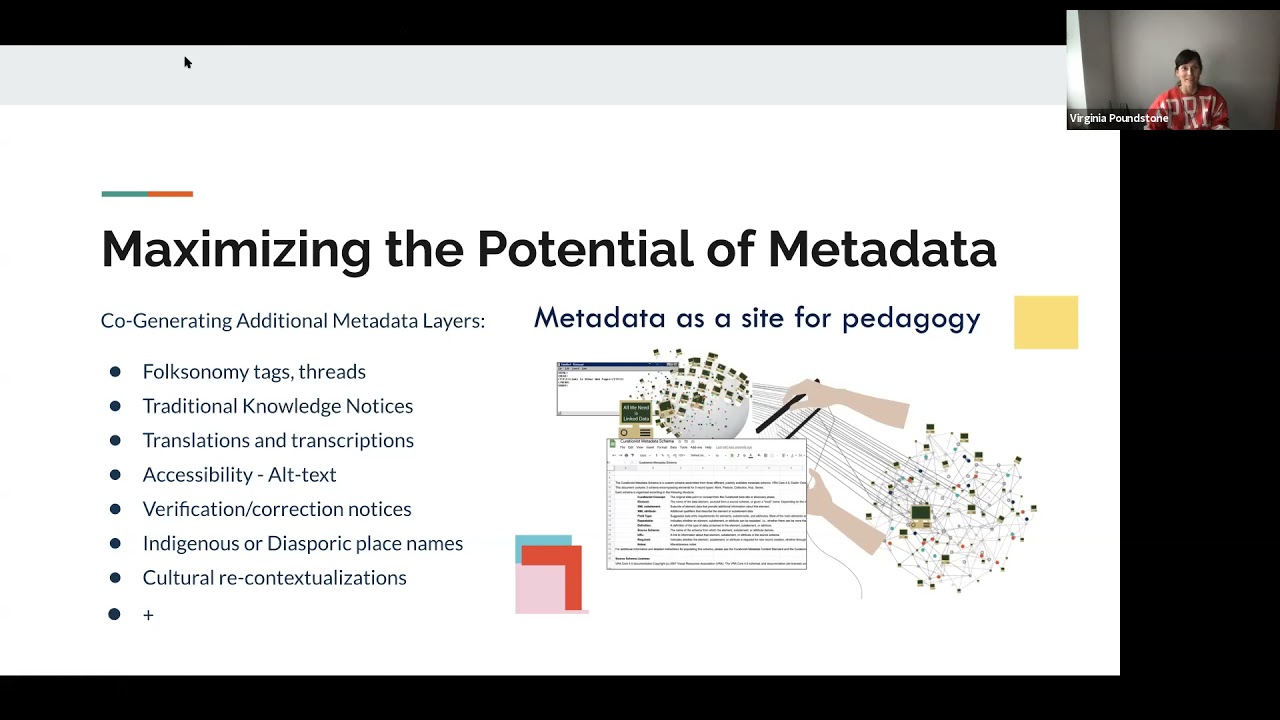Garrett Graddy-Lovelace, Maui Hudson, Jane Anderson, Sharon Mizota, and Virginia Poundstone
As UNESCO 2019 OER Recommendations and the Open Education Global Conferences demonstrate, there is a booming global need for and proliferation of open licensed digital educational content. As educators and self-educators seek material online, galleries, libraries, archives, and museums (GLAM) also work to digitize their content and move it into Creative Commons and public domain realms. This mass convergence–of digital cultural heritage objects and those who seek to learn and teach from them–presents vast pedagogical potential, and risks. GLAM collections often have colonial histories of outright plunder and empire; these genealogies of abduction extend into cultural appropriation and erasure as indigenous, Black, or colonized contexts get omitted in the metadata about the digital object. There is also the concurrent risk that racist and incorrect images, terms, and assumptions get reproduced and circulated in the open knowledge realm.
This session introduces an online platform for OpenGLAM OER grounded in a Community Metadata Generator; researchers, educators, and even the public at large can layer additions to inherited, descriptive, linked open metadata. These additions include corrections, translations, transcriptions, as well as alt-text accessibility. They also include cultural re-contextualizations to counter Eurocentric or gendered biases.
In particular, this Interactive Activity focuses on Traditional Knowledge and Biocultural Notices as key micro-contributions for the OpenGLAM OER Community Metadata Generator. Founders and designers of these educational TK and BC Labels will introduce the open educational potential of these crowd-sourced Notices, which flag for indigenous communities the need for indigenous-authored and indigenous-authorized TK/BC Labels.
Students are increasingly learning a lot from digital cultural heritage objects, but they also need to learn about the colonial contexts and decolonial potential of such collections and classifications themselves. Across disciplines and languages, TK/BC Notices in particular–and Community Metadata Generator layers at large–can teach students critical digital literacy, indigenous data sovereignty, and intercultural dialogue even as they are also learning from and with global cultural heritages.
Extended abstract: OE_Global_2021_paper_134.pdf ![]()
Activity Details
UNESCO OER Action Area: Inclusive and equitable OER
Format: Asynchronous Interactive Activity
Language: English
Live Session
A synchronous live session has been scheduled for this activity:
When (converted to your local time):
2021-09-29T20:00:00Z → 2021-09-29T21:00:00Z
Duration: 1h 00m
Registered conference participants will find the link to join the live session from the Special live Sessions.
Presentation Recording
Participate
This activity can be completed at any time during (or after) the conference.
Instructions and materials for the activity will be added below by the authors. They will provide specific details on how to participate and what to share back as a response to the activity.
